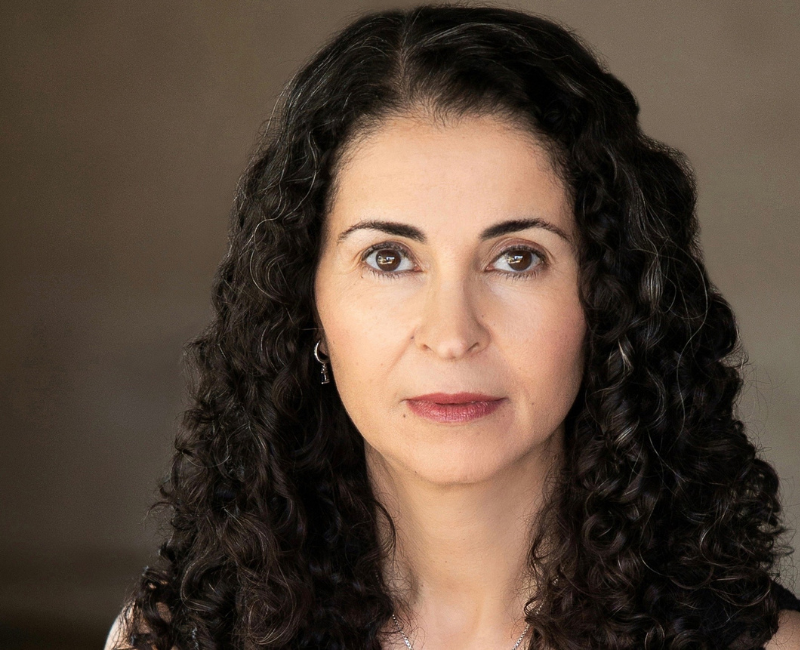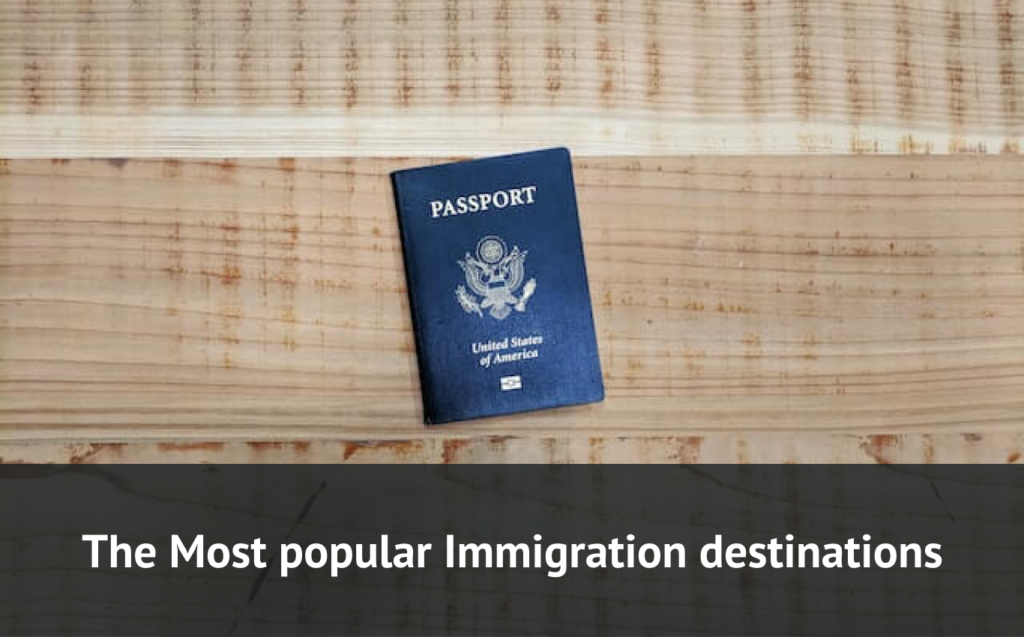 INTERNATIONAL CASABLANCA POSTS
INTERNATIONAL CASABLANCA POSTS
Laila Lalami on Media and Islamophobia: To Belong or Not to Belong
Abdelmalek Essaadi University Soumaya.mirelhaouari@etu.uae.ac.ma Since the inception of America as a full-fledged nation, the concept of citizenship has been in question. In fact, belonging to a homeland is a right of everyone despite the differences of their origins, religions, and all other identities.
The antecedents of national identity remain a complete mystery, as seen by the continuous debate over what constitutes membership in the political community of the United States. Lalami narrates these boundaries through her own experience. This experience, in fact, does not reflect a unique, rare experience of one person, but rather the experience of a number of people; some find a way to express it while others find refuge in silence.
Lalami is sworn in as an American citizen on a hot day in 2000 at the Pomona Fairplex, which also hosts the Los Angeles County Fair. Reality goes otherwise. She has actually been able to acquire American citizenship, but whether she will actually be considered a hundred percent American is a dream that has not been fulfilled to the writing of this article.
The lines of the text reflect the nullity of the preconceived notion of complete equality between all groups of the American people regardless of their differences. She returns to collide with the painful reality that stood between her and a dream of absolute belonging. These lines express disappointment resulting from the collision with reality. Thus, one can conclude that there is a vast difference between what is written in the constitution and the contradictions on the ground.
This imbalance between theory and practice raises a question about whether all groups suffer from the same degree of affiliation and non-affiliation, or whether there are groups that have eligibility over others. The writer returns to remind the reader that discrimination amongst members of the American community is more about race, gender, and religion than it is about diligence or national duty. The tensions in dealing with her adoptive country unveils the truth about how racism and gender discrimination is hereditary in contemporary American society.
This claim scratches the basic element for the establishment of the American state in its battle to flame the provisions of humanity, which is the Declaration of independence. It states in an inspiring passage that Americans “hold these truths to be self-evident, that all men are created equal, that they are endowed by their Creator with certain unalienable Rights, that among these are Life, Liberty and the pursuit of Happiness.” It is evident then that the different other, especially the immigrant, female, Arab, and Muslim, is always represented as the other who is unable to belong despite all her attempts to do so. Evidently, this is an implicit indication of active duality of superior versus inferior.
The relationship between European and non-European Americans is not a relationship of love as much as of anxiety towards the different other as if the colonial past is never to be elapsed. This other, even if educated and famous as it is the case for Lalami, is still considered the inferior other. This is further reinforced as a woman targets Laila during the latter’s reading of her novel The Moor’s Accounts to a literary organization in Arizona. The woman states that when she switches on the television, the only Muslims she sees are extremists. In the same context, Lalami is asked about a variety of questions including these on ISIS. She vies for considering this deviation of questions as a natural inquiry as she narrates that even once the questioning shifted from Morocco to Islam— and eventually to ISIS, she kept telling herself that people are fascinated by the sort of conditions that propel certain individuals to a creative life.
This speech carries heavy connotations. On the one hand, there is a shedding of light on the image of the Arab Muslim human in America, which, especially after the events of 9/11, became a hint of terrorism and an intruder to civilization. It is inevitable that this negative image creates sensitivity in various degrees towards the ‘other’, which poses a threat to the aesthetic of the Western image in America. This sensitivity creates divisions within a single country, which obstructs its first word, “united.” The union can only be created by accepting difference, but when the difference is ‘exotic’, then it becomes difficult to create a discourse without dialogue. This exotic image about the other makes one vulnerable to absorbing publicity.
The narrator then tries to highlight how the prejudice against individuals has created an extremist image of the Muslim as terrorist. The way the woman thinks that the writer would find a justification for ISIS is itself evidence of a mystical accusation and an ideological hegemony over the representation of Islam in the West. On the other hand, by narrating her incident with the woman, the narrator sheds light on the role of media in portraying the Muslim Arab as terrorist. The woman’s claim that media only highlights the hardliners makes it accepted for all Muslims to be viewed as inferior in need of tutelage.
Once again, the narrator and the main character Laila highlights the importance of media in creating propaganda about Muslims as terrorists. This is evident as concepts like islamophobia came to existence. Muslims’ perspectives are underrepresented, and their problems are frequently portrayed as derogatory. Fox News’s striking titles could be considered vivid examples of this phenomenon. “Is Islam a Destructive force: There are exceptions but they are few”, “Exposing Islamic Extremists”, “Does Islam Promote Violence” are among these striking titles, to name but a few. (O’Reilly, 2017) In his article “Jump Back Jack, Mohammed’s here,” Fred Vultee states that Fox viewers were more likely than viewers of other commercial networks to have at least one misconception about the US justification for the Iraq War. (Vultee, 2009)
How media serves as means of propagating further reinforces the woman’s assertion that media only sheds light on extremist Muslims. It is not only the Iraqi war that arouses Fox News, it is the political. By that I argue that Media plays an important role in reshaping attitudes. Lalami continues to unravel and unearth the role of media. She puts it as follows:
Places of worship, community centers, and businesses were burned down or vandalized; men were killed or assaulted; women were stripped of their headscarves; and children were taunted at school. In the months following the terrorist attacks, hate crimes against Muslims spiked, accounting for 27 percent of all religious-bias crimes in 2001. Sikh men, frequently mistaken for Muslims because of the turbans they wear, were particularly targeted. (Lalami, 2021, p.14)
As a result of the media representation of Muslims during the events of 9/11, tensions towards Arab Muslims have been increasing. These reactions, Laila recalled, extended beyond the verbal to the physical. This indicates that Muslim Arabs and Americans of Arab origins who preserve the Islamic appearance are considered a virus that must be eradicated. Laila narrates that she was asked by a reader the following question: “What are you? … Muslim or human being?” (p. 16) This question is considered an accusation, but rather an insult that reflects the stereotypical image of the Arab Muslim in its waves. Lalami’s memoir forces us to reconsider the human rights breaches perpetrated by mass monitoring of target populations, hypocrisy in how we see violent actions, and the assumptions on which the government bases its counterterrorism effort.
Another indication of racism towards Muslims is mentioned by Lalami as she exemplifies her stand by an occurrence of McCain’s. A white woman told McCain that “I can’t trust Obama. I have read about him, and he’s not, he’s not, he’s a —an Arab.” “No, ma ’am,” McCain replied, taking away her microphone. “He’s a decent family man, a citizen that I just happen to have disagreements with on fundamental issues.” (p.17)
The first point I want to argue about is how this woman refuses to trust Obama just because he might be an Arab. The Arab, then, is not trusted here, but rather suspicious. This claim further emphasizes the fact that the Arab is not only different, but less valuable than the Westerner. “Arabs and Muslims as lesser people: their religions, languages, cultures, customs, and modes of dress are marked not only as different but also inferior” (p. 10)
The second point I want to shed light on is the way through which McCain responds back to the woman. As we notice, he chooses not to discuss ‘Arabism’, rather he states that Obama is from a ‘decent’ family. He belies the earlier claim that Obama is an Arab, and adds that the latter is from a ‘decent’ family. So, does the fact of being an Arab really interfere with being from the good family? Can’t an Arab family be a good family? These are previously answered questions.
Americanness is not a journey of struggle that only involves Muslims, it is an issue of several sections of society. Black, Mexicans, Asians, and women are part of it. This is a fact Laila Lalami does not hesitate to spot light on. Narrating the boundaries of Americanness, Laila states, based on her experience, that “white men had a say in how the country was to be run, whereas white women, indigenous people, free blacks, enslaved men and women, and immigrants of all backgrounds did not.” (p. 93)
To wrap up, being American does not necessarily mean being American in style. Up to this point, America is still suffering from internal divisions. What is of extreme controversy is that favoring groups over others is not a crime, given that even some official bodies do not hesitate to express approval for these practices. On a Tweet, Donald Trump J. did not hesitate to justify the building of Trump wall stating that: “You know why you can enjoy a day at the zoo? Because walls work.” (p. 52) To what extent can we accept comparing human beings to animals? This proves the renaissance of the colonial discourse.
References:
Fox News. “Bill O’Reilly: Is Islam a Destructive Force in the World?” Fox News, 13 Nov. 2018,
www.foxnews.com/transcript/bill-oreilly-is-islam-a-destructive-force-in-the-world.
Lalami, Laila. Conditional Citizens: On Belonging in America. Vintage, 2021. Vultee, Fred. “JUMP BACK JACK, MOHAMMED’S HERE.” Journalism Studies, vol. 10, no.
5, 2009, pp. 623–38. Crossref, https://doi.org/10.1080/14616700902797333.
By Mir El Haouari Soumaya






